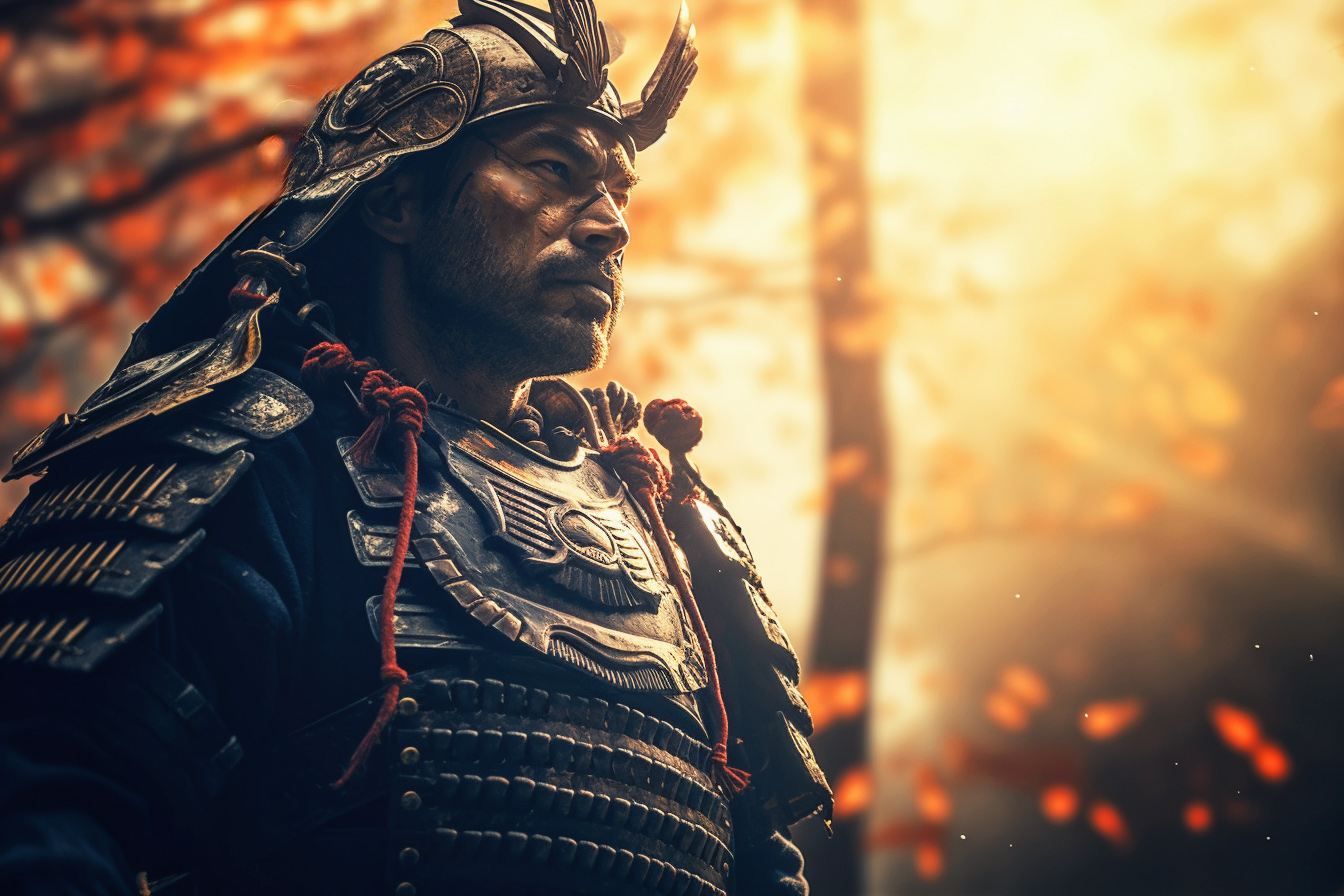Miyamoto Musashi, a revered samurai in 17th-century Japan, believed solitude was the path to changing one’s life. He spent most of his life alone, developing his skills and philosophy. In his final work, “The Path of Walking Alone,” Musashi left 21 precepts to guide people toward fulfillment through the power of solitude.
Musashi’s Life and Pursuit of Mastery
Musashi was born in 1584 during Japan’s civil wars. His sword skills were unmatched, but his wisdom continues to inspire centuries later. He was an artist, philosopher, and renowned swordsman, winning over 60 duels. His journey led to deep introspection and wisdom through discipline, dedication, and solitude.
Musashi’s solitude was about mental clarity, not isolation. He advocated self-improvement through introspection and understanding the world while maintaining humility. This understanding was captured in “The Path of Walking Alone.”
The Path of Walking Alone: 21 Precepts
- Accept everything just the way it is.
- Do not seek pleasure for its own sake.
- Do not, under any circumstances, depend on a partial feeling.
- Think lightly of yourself and deeply of the world.
- Be detached from desire your whole life long.
- Do not regret what you have done.
- Never be jealous.
- Never let yourself be saddened by a separation.
- Resentment and complaint are appropriate neither for oneself nor others.
- Do not let yourself be guided by the feeling of lust or love.
- In all things, have no preferences.
- Be indifferent to where you live.
- Do not pursue the taste of good food.
- Do not hold on to possessions you no longer need.
- Do not act following customary beliefs.
- Do not collect weapons or practice with weapons beyond what is useful.
- Do not fear death.
- Do not seek to possess either goods or fiefs for your old age.
- Respect Buddha and the gods without counting on their help.
- You may abandon your own body but you must preserve your honor.
- Never stray from the Way.
These precepts reflect Musashi’s approach to life, emphasizing self-restraint, self-discipline, and a commitment to constant learning and personal growth.
Applying Musashi’s Teachings Today
The insights from the solitude that Musashi formulated for samurai can be applied in modern lives through his work “The Path of Aloneness.”
For example, Musashi teaches us the value of self-reliance over seeking fleeting happiness from others’ approval, promotions, wealth, or material possessions. True, lasting fulfillment comes from within, from living with purpose and integrity. We can apply this by finding satisfaction in personal growth, meaningful work, and being true to our values.
Musashi prompts us to consider significant life decisions like careers, relationships, or relocation. Rather than acting rashly based on momentary passions, we can contemplate the broader implications and listen to our most profound wisdom.
Musashi advocates non-attachment to unnecessary possessions, habits, or thoughts. For instance, we can reflect on regrets, grudges, or “what-ifs” that weigh us down. Releasing these can make space for present-moment clarity. Similarly, reducing physical clutter creates mental clarity.
Musashi’s teachings to embrace the impermanence of life and detach from desires are applicable today. For example, recognizing life’s ephemeral nature helps prioritize meaningful experiences over accumulating possessions. Acknowledging that loss is inevitable can help us cherish each moment. Detaching from the insatiable desire for acquisition and stimulation fosters an appreciation for what we have.
Implementing Solitude Today
Despite constant connectivity today, solitude still holds value. We can implement Musashi’s lessons by taking regular silent breaks, digital detoxing, detaching from the crowd, and prioritizing solitude. With effort, we can integrate solitary introspection into our lives for personal growth.
For instance, taking 10-15 minutes in the morning for meditation, journaling, or just sitting in silence can allow self-reflection before jumping into a busy day. Weekend nature walks immerse us in serene solitude. We can also schedule offline vacations to unwind deeply. Turning off notifications and avoiding screens an hour before bed enables restful sleep.
Spending time alone without input from others’ opinions, whether through social media or conversations, can help crystallize our thoughts, values, and direction. Rather than swaying with the crowd, solitude grants clarity on our authentic path.
Setting healthy boundaries and learning to say no to unnecessary commitments create space for solitude. Avoid overbooking the calendar and leave flex days open. Simplify priorities based on what matters instead of pursuing every opportunity.
Approach solitude with a beginner’s mind – let go of expectations on insights to emerge. Instead, be open to whatever self-discovery unfolds without judgment.
Conclusion
Centuries after his death, Musashi’s teachings on solitude remain strikingly relevant. In today’s world filled with endless distractions and noise, carving out time for solitude can seem challenging yet profoundly rewarding.
As Musashi demonstrated throughout his life, disconnecting from the constant demands on our attention and looking inwards holds immense value. It opens the doorway to self-discovery, helping us touch our most profound wisdom. Away from the chatter of constant stimuli, we can hear our voices with clarity.
The lessons Musashi gleaned from his solitary journeys have withstood the test of time. He shows us by example how a profound understanding of oneself emerges from simply being alone. Moments of stillness allow insights to arise that remain obscured in the commotion of daily life.
Integrating even small pauses of solitude, such as a short meditative walk in nature, we create space for examining our lives with a fresh perspective. Herein lies the seed for awakening – and walking the path of thoughtful, mindful living.
Centuries later, Musashi continues reminding us of solitude’s power to realign us with our inner truth – if we listen to this quiet, stirring voice within.
